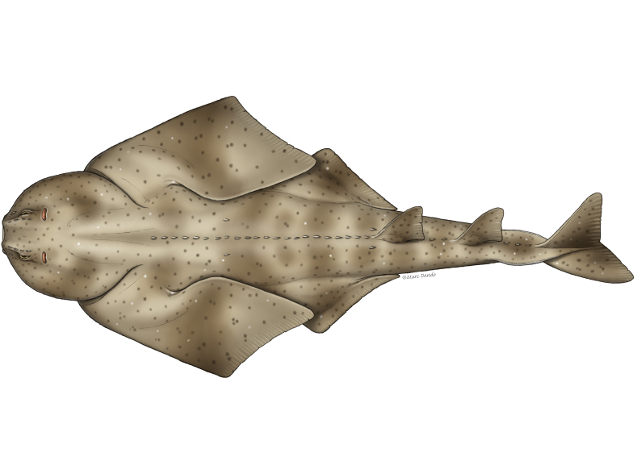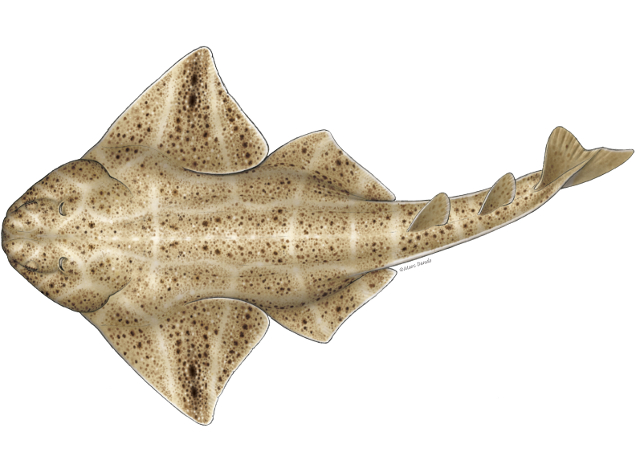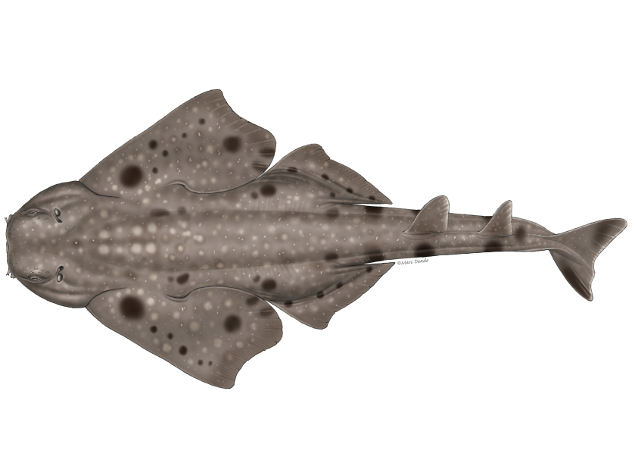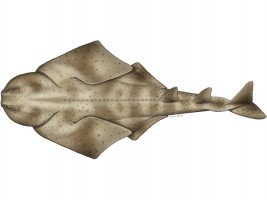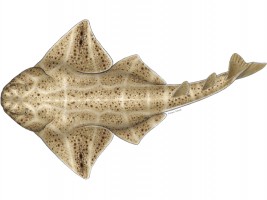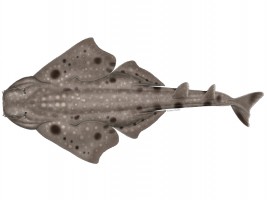Angelshark: championing one of nature’s most vulnerable species
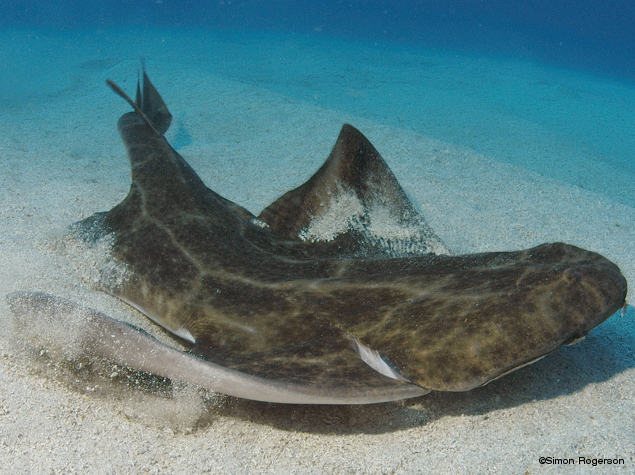
The angelshark (Squatina spp.) was formerly a common and important demersal predator over large areas in the Northeast Atlantic, Mediterranean and Black Seas. Most of these regions are now subject to intense demersal fisheries, and the species is highly vulnerable from birth onwards to bycatch. Moreover, like all elasmobranchs, angelsharks are late to mature, produce few young and their morphology (large, flat-bodied coastal species) makes them especially vulnerable to the point where it has been declared extinct in the North Sea and has apparently been extirpated from large areas of the northern Mediterranean.
Squatina squatina’s situation is mirrored by most of the 22 species of angelshark, which make up the family Squatinidae. Over half of these species are currently listed as threatened on the IUCN Red List.
There is a great deal of unknowns relating to angelshark biology and the Shark Trust hopes this project could help either collate or highlight the need for additional research for these extremely vulnerable species.
Final summary report of the first phase:
The main objective of this first phase was to secure the data and evidence required to underpin a successful proposal for angelshark as candidate species for listing on Appendix I of the Convention on Migratory Species (CMS).
- A bibliographical research managed to gather all the studies and documents published worldwide on this family.
- A virtual network between organizations and researchers working on this family has been created, the ‘Angel Shark Conservation Network’.
- An initiative to encourage general public sighting reporting has been set up in partnership with the Poseidon database. This program has been promoted notably through medias, social networks and towards sport fishermen.
- The Shark Trust teams contacted various CMS signatories to partner on the angelsharks submission in Appendix 1. Furthermore, TST has become a technical partner in this convention.
- A seminar has been held in Gran Canaria to develop an action plan to safeguard the angelsharks in the Canaries. Another workshop has been conducted for the development of conservation strategies in the Atlantic and the Mediterranean with members of the consultative committee of the CMS MoU.
- In the coming months, the possibility of submitting the 3 species to the CMS will be studied.
Fondation Ensemble supported this project, within the first phase, for 10,000 €.
Final summary report of the second phase:
The objective of this second phase is to identify the distribution of three Critically Endangered angel shark species in the Mediterranean: the Angelshark (Squatina squatina), the Sawback Angelshark (Squatina aculeata), and the Smoothback Angelshark (Squatina oculata).
First, their evolution zones have been studied using data from the Food and Agriculture Organization of the United Nations (FAO). Contacts have been made with local researchers and enforcement organisms. Identification materials were provided in various languages and sightings submissionsencouraged. Also, hotspots for future tagging have been identified. The Shark Trust also proposed various regulations for national and Europeans laws to be adopted.
Squatina squatina species has been registered in the two appendices of the Convention on the Conservation of Migratory Species (CMS). Further studies have to be done on the two other species to achieve the same result. Their position on the IUCN Red List and their distribution map have been reevaluated. They remain “Critically Endangered”. The Angel Shark Conservation Network is now composed of 120 members. Communication about the project is also very active on social medias.
Fondation Ensemble supported this project, within the second phase, for 8,000 €.
This project is partly funded thanks to the sponsorship of a generous donor. If you also wish to support initiatives towards threatened animal species conservation, click here.

